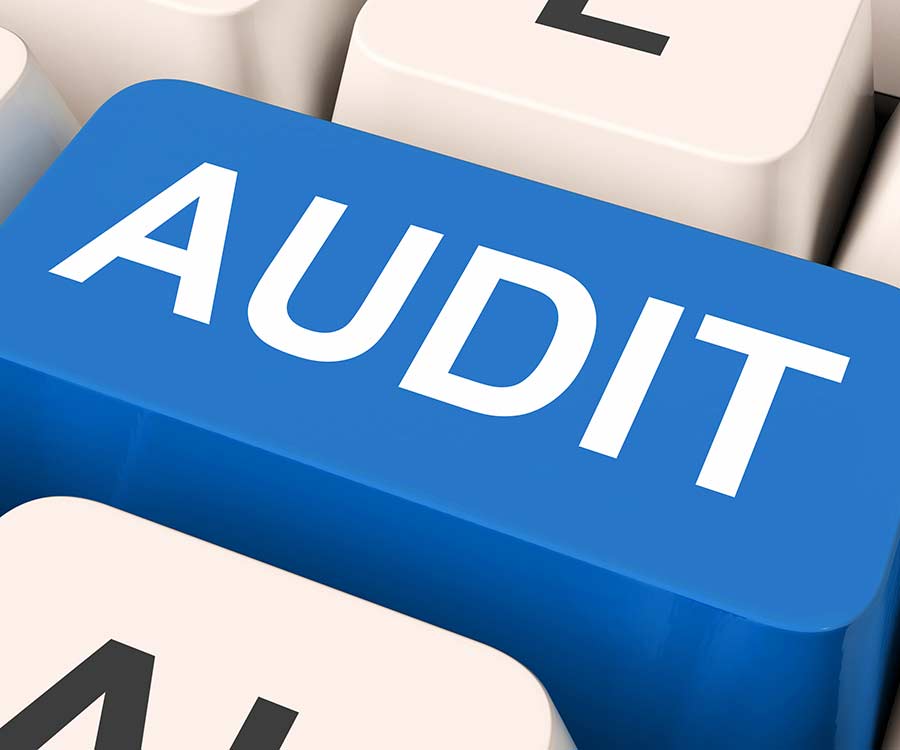Are you worried about being audited by the IRS? Do you know whether or not you fall into a high-target area for an IRS audit?
Even though most people will never be audited during their lifetime, there are certain tax filing categories that the IRS targets more frequently than others. If you fall into one of those categories, you will want to be extra careful when filing your tax return.
While it is important for everyone to be truthful, keep good records and back up documentation when reporting taxable income, tax credits and tax deductions to the IRS, it is even more critical for those who are prone to being audited.
Who is Most Prone to Being Audited?
Out of all tax returns there is about a 1% chance of receiving an audit. If you segment out tax returns by income level and type of business (Corporation, self-employed, partnership, individual, etc), you will see that some people are much more likely than others to be audited. If you fall into one of the following categories, you will need to be on high alert for a potential IRS tax audit:
Self-Employed Individuals: If you are self-employed and you report your income to the IRS on a Schedule C form or a Schedule E form, you are considered a prime target for an audit. Those who are self-employed generally have multiple tax deductions and the IRS will want to know that all of the deductions that you claim are legitimate. If you claim a net loss – especially if you claim one for multiple years in a row – your chances of being audited increase even greater.
High-Income Taxpayers: If your income is in the millions, beware. The number of IRS audits on millionaires – particularly those earning more than $5 million per year – is on the rise. Even individuals earning over $200K a year are more likely to receive an audit. (Numbers below are based off of 2008 audit rates, which typically don’t change much from year to year.)
- Income $100K-199K = Average risk for audit (about 1% chance)
- Income $200K-499K = 2 times more likely to get audited
- Income $500K-999K = 3 times more likely to get audited
- Income $1M-4.99M = 4 times more likely to get audited
- Income $5M-9.99M = 6.5 times more likely to get audited
- Income $10M+ = 10 times more likely to get audited
Small Business Owners: If you own a small business, you are another likely audit target of the IRS. Small businesses are often targeted for audits due to errors in filing. If you are a small business owner, your best bet is to hire a tax preparer who specializes in small business taxes to prepare and file your tax return on your behalf.
Itemized Returns: Itemized returns are much more likely to be chosen for an audit compared to those returns that use the standard deduction. When you itemize, you leave more room for error. Additionally, the IRS is well aware that many taxpayers exaggerate their tax deductions.
Businesses that Operate on Cash: If you run a business that takes in mainly cash you are another prime target for an IRS audit. It is, of course, easier to not report income if your business primarily deals in cash and the IRS works to prevent this from happening. If you run a cash business your best defense is to keep precise and accurate records to back up your income claims and to verify tax write-offs.
Tips to Help You Avoid a Tax Audit
Here are some tips that just might save you from a tax audit:
- Make sure that all of the information on your tax return is accurate. This means double-checking your math, making sure that you’ve accurately listed your social security number, ensuring that you have claimed the correct number of dependents, filing under the correct status, and so on.
- Be sure to report all of your income. If, for example, you are a contractor who has received multiple 1099s, be sure to total your income accurately and do not leave any earnings out.
- Be careful about reporting business losses, especially for multiple years in a row.
- Do not claim credits and deductions that you are not eligible for.
If you are at risk of being audited by the IRS or if you are unsure as to whether or not you may be at risk or how to file your taxes, it is always recommended that you seek the guidance of an expert tax professional.



tax audits can be worrying!!